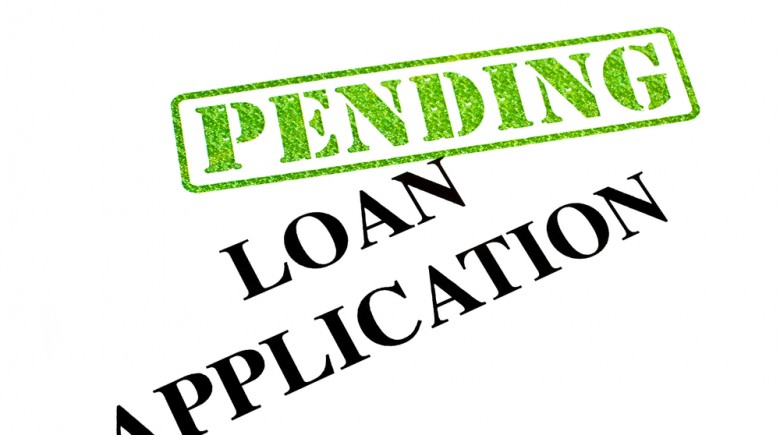If your parents, grandparents or maybe a sibling cosigned a loan for you when you were starting out, you may feel that it’s your obligation to give back and help a fellow family member. Cosigning a loan is a selfless gesture, and you no doubt appreciate the help extended to you.
However, cosigning a loan involves more than lending your credit score to help someone meet a bank’s minimum credit requirement. Although a common practice, there are three reasons why you should never cosign a loan.
If you cosign a loan for another person, the bank will require your attendance at the loan closing. Your presence isn’t just to make sure that you’re okay with the process. The lender will hand you and the primary borrower a bunch of papers, and require both of your signatures on the documents.
The fact that you have to sign your name to the loan papers says a lot about the gravity of this choice. You are not a silent partner in the deal – this is your debt as much as it’s the other person’s debt.
But unlike loans that you take out for yourself, this debt does not benefit you in anyway.
You can cosign a loan for another person, but that doesn’t mean your name will appear on the title. Therefore, if the person defaults on the loan, you have no rights to the car – although you may get stuck with the car payment.
It’s not the bank’s responsibility to explain the pros and cons of cosigning a loan. They’re in business to make money and create loans, not educate you. Therefore, it’s important that you understand the consequences of cosigning your name.
Here is the thing, each time you take out a loan – whether it’s for yourself or for someone else, your debt to income ratio increases. This is basically the amount of debt you have in comparison to your income. The higher your debt to income ratio, the more difficult it is for you to qualify for loans.
See the problem?
If you cosign a loan for someone else, and then try to get a loan for yourself, a lender could reject your application because you have too much debt.
If you take out a car loan for yourself, you cannot call your lender two years later and decide that you no longer want the car loan. You signed the paperwork and agreed to pay off the debt over a certain number of years. Well, the same rule applies when you cosign a loan.
If you cosign an auto loan with a five-year term, your name is attached to this loan for the next five years. Any activity associated with this loan – good or bad – appears on your credit report. This is where the danger comes in.
You could start to regret your decision for fear that the primary borrower’s payment habits will negatively shape your credit. But there’s really nothing you can do about this. The only way to remove your name from a cosigned loan is for the primary borrower to refinance the loan in his name only. And unfortunately, this is not a decision you can force.
If your parents, grandparents or maybe a sibling cosigned a loan for you when you were starting out, you may feel that it’s your obligation to give back and help a fellow family member. Cosigning a loan is a selfless gesture, and you no doubt appreciate the help extended to you.
However, cosigning a loan involves more than lending your credit score to help someone meet a bank’s minimum credit requirement. Although a common practice, there are three reasons why you should never cosign a loan.
If you cosign a loan for another person, the bank will require your attendance at the loan closing. Your presence isn’t just to make sure that you’re okay with the process. The lender will hand you and the primary borrower a bunch of papers, and require both of your signatures on the documents.
The fact that you have to sign your name to the loan papers says a lot about the gravity of this choice. You are not a silent partner in the deal – this is your debt as much as it’s the other person’s debt.
But unlike loans that you take out for yourself, this debt does not benefit you in anyway.
You can cosign a loan for another person, but that doesn’t mean your name will appear on the title. Therefore, if the person defaults on the loan, you have no rights to the car – although you may get stuck with the car payment.
It’s not the bank’s responsibility to explain the pros and cons of cosigning a loan. They’re in business to make money and create loans, not educate you. Therefore, it’s important that you understand the consequences of cosigning your name.
Here is the thing, each time you take out a loan – whether it’s for yourself or for someone else, your debt to income ratio increases. This is basically the amount of debt you have in comparison to your income. The higher your debt to income ratio, the more difficult it is for you to qualify for loans.
See the problem?
If you cosign a loan for someone else, and then try to get a loan for yourself, a lender could reject your application because you have too much debt.
If you take out a car loan for yourself, you cannot call your lender two years later and decide that you no longer want the car loan. You signed the paperwork and agreed to pay off the debt over a certain number of years. Well, the same rule applies when you cosign a loan.
If you cosign an auto loan with a five-year term, your name is attached to this loan for the next five years. Any activity associated with this loan – good or bad – appears on your credit report. This is where the danger comes in.
You could start to regret your decision for fear that the primary borrower’s payment habits will negatively shape your credit. But there’s really nothing you can do about this. The only way to remove your name from a cosigned loan is for the primary borrower to refinance the loan in his name only. And unfortunately, this is not a decision you can force.







